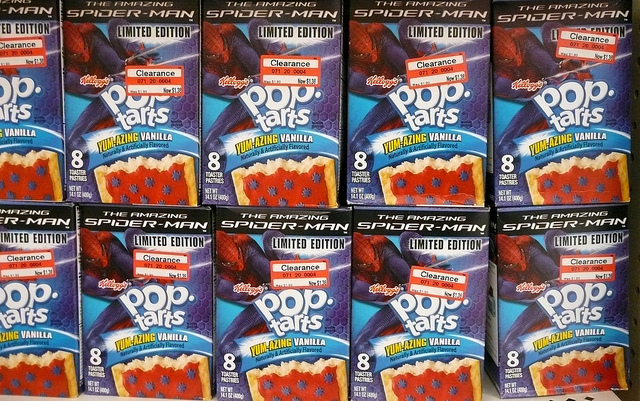Science Determines What Spider-Man Would Need to Eat for Breakfast in Order to Swing Around New York
Because science.


Over on The Conversation, Mark Lorch found himself pondering Spider-Man’s dietary habits while watching the best Spider-Man movie (the 2002 original, duh). In order for a spider’s body to produce silk, it needs protein; so Lorch figured Spider-Man would operate in much the same way (because who needs mechanical web slingers when you can have weird biological ones?)
Lorch approached the problem by determining the strength of Spider-Man’s silk (he assumes it would be the same as the European garden spider, Araneus diadematus, similar to piano wire); how much force he would exert upon it (about 735 Newtons, if Spider-Man weighs 165lbs); and then how much protein he would need in order to create it. Given these calculations, Lorch says that to produce about 100 meters of spider silk, Spidey would need to eat about fifteen eggs for breakfast. Not bad.
Unfortunately, that’s not actually the case. Here, Lorch can explain this far better than I can:
But spider silk consists predominantly of a protein call fibroin. Proteins are made from different amino acids, and fibroin is about 42% glycine. While egg consists of just 10.7% glycine and serine (I’m counting serine because it can be easily converted to glycine). So really Spidey needs to consume four times more egg protein than the silk protein he plans to use. So actually he needs 60 eggs for his 100m of silk.
But wait, there’s more! If you consider the fact that Spidey might be sliging along with someone else in toe—say, MJ—he’s going to need even more silk, bringing his daily breakfast total up to about nine-hundred eggs. Just for this:

(via Phys.org, image via Scorpions and Centaurs)
Are you following The Mary Sue on Twitter, Facebook, Tumblr, Pinterest, & Google +?
Have a tip we should know? [email protected]